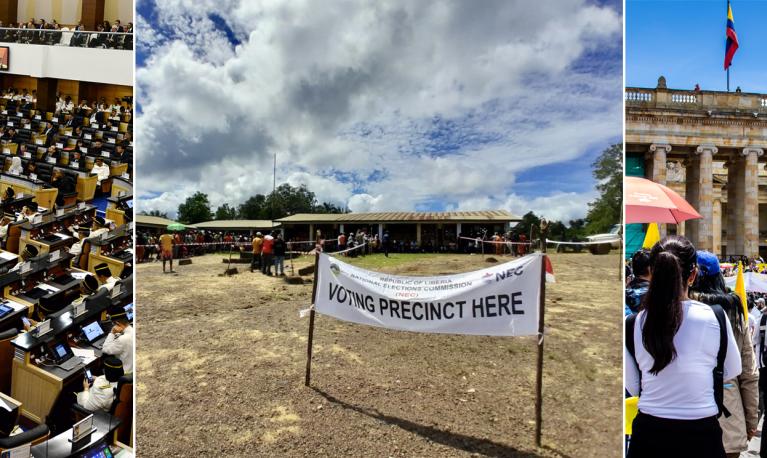- Report
- 21 octobre 2024
Indonesia: Women’s political engagement and gender norms
- Author: Ella S. Prihatini, Diahhadi Setyonaluri, Malinda Damayanti, M. Fajar Ramadhan, Nathanael Z. Heindri
- Published by: ALIGN
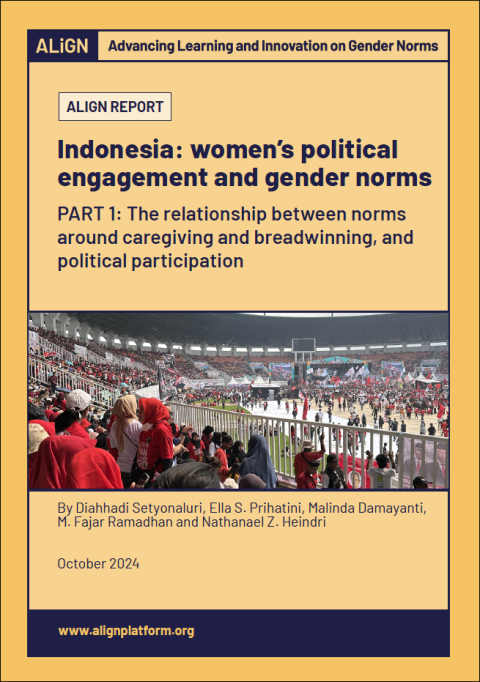
More than 205 million people in Indonesia voted on 14 February 2024 in their national and local elections. In this Muslim-majority and young democracy, the elections offer a unique opportunity to observe women’s participation in electoral rallies and campaigns. In the context of women’s continued underrepresentation, this study explores the association of gender norms and women’s engagement in political activities tied to the 2024 elections, and builds on research that investigates persistent barriers to women’s political participation. It focuses on male-breadwinning norms, which are rooted in the interpretation of kodrat, a concept of traditional gender roles linked to a perceived natural trait or biological disposition.
The study findings are captured in two reports – the first one is based on a quantitative analysis of a survey of 1,059 women attending the 2024 presidential campaign rallies in four major urban areas of Indonesia: Jakarta, Medan, Surabaya and Makassar. The second report summarizes a qualitative analysis of interviews that explore the strategies used by political parties to engage women voters during candidates’ presidential and legislative campaigns.
The study finds around 60% of women surveyed were motivated primarily by the money they can receive for participating in political rallies, regardless of their education and income levels, or whether they adhere to egalitarian, moderate or patriarchal gender norms. Interviews reveal various ways that gender norms affect women across all stages of the political process, from their decisions to run for office to citizens casting their ballots.
- Countries / Regions:
- Indonesia
Related resources
2 November 2020
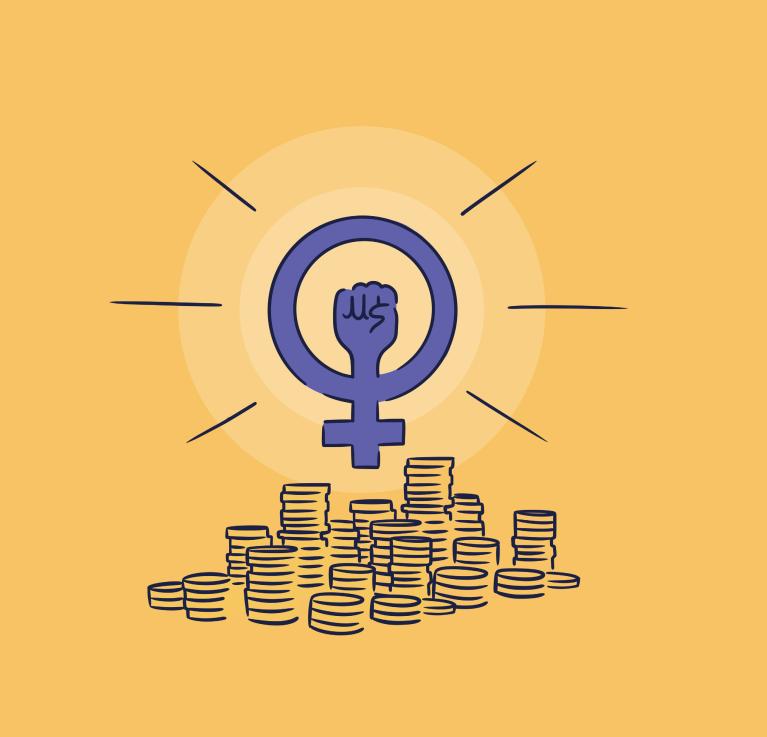
Blog
10 février 2025

Blog
19 décembre 2024
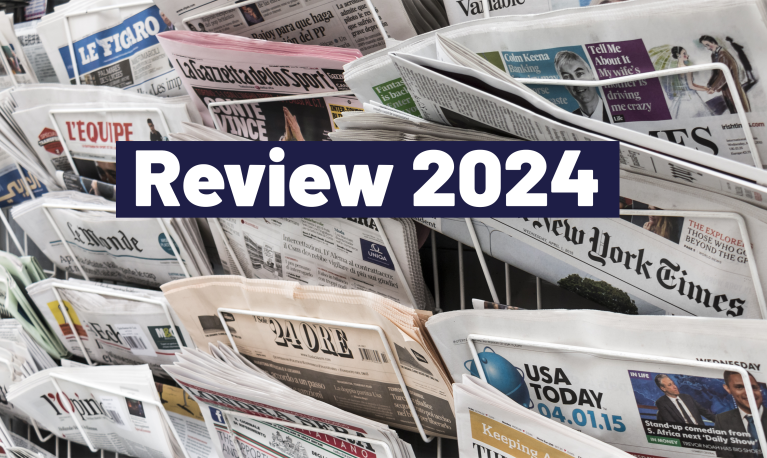
Blog
14 octobre 2024
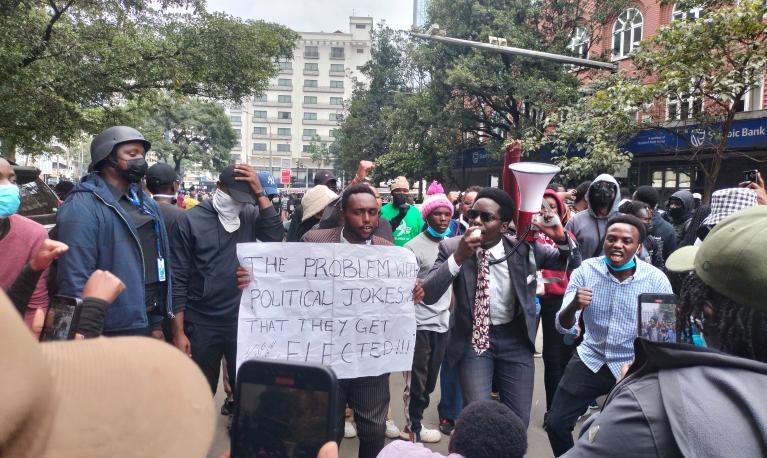
Blog
28 mai 2024
